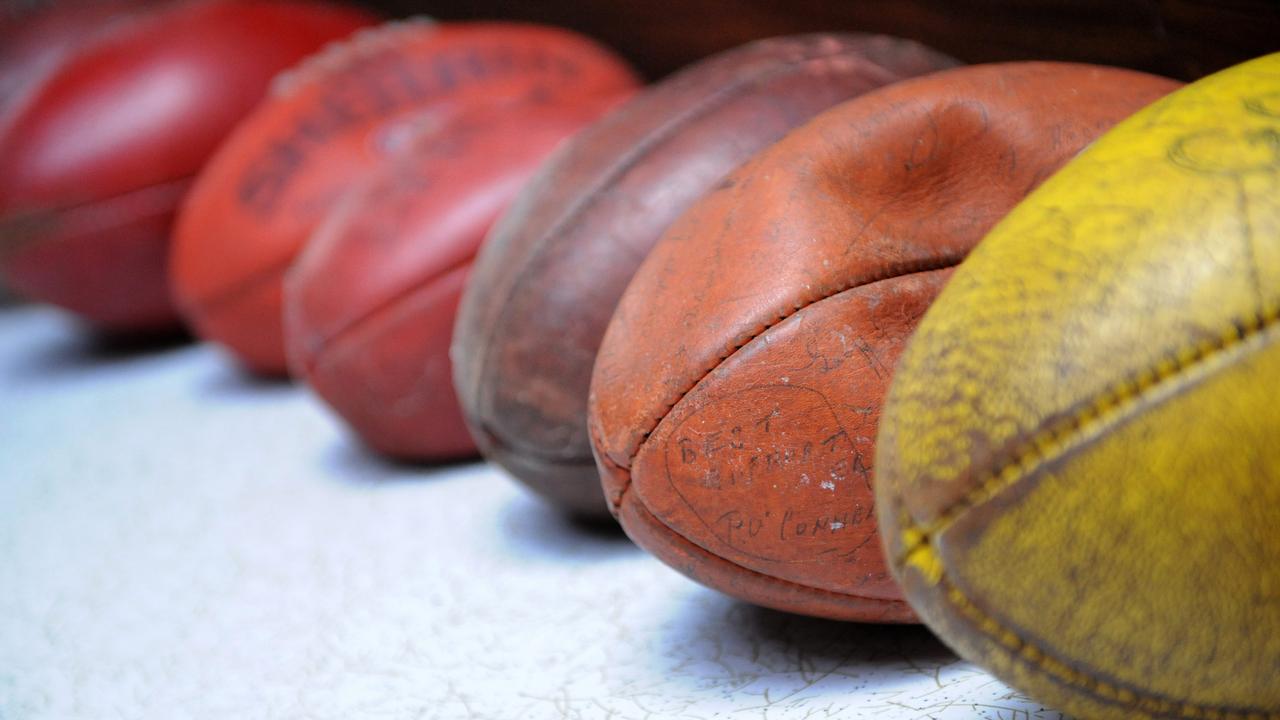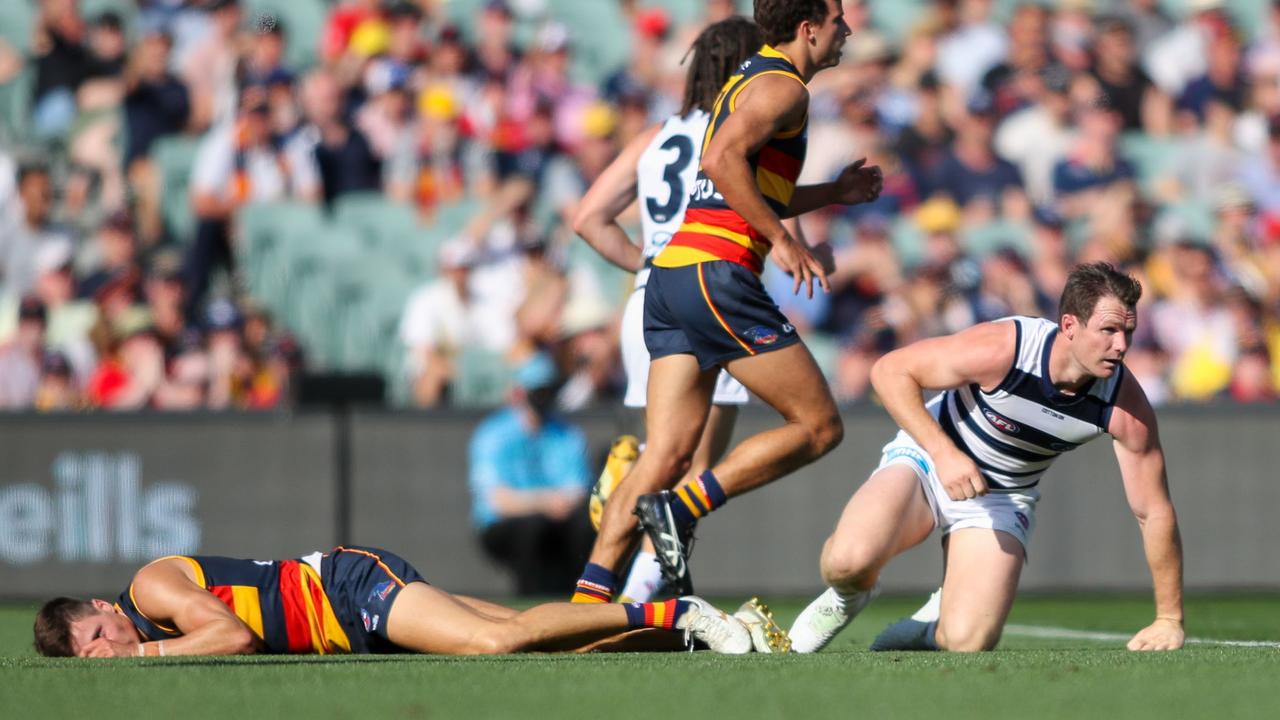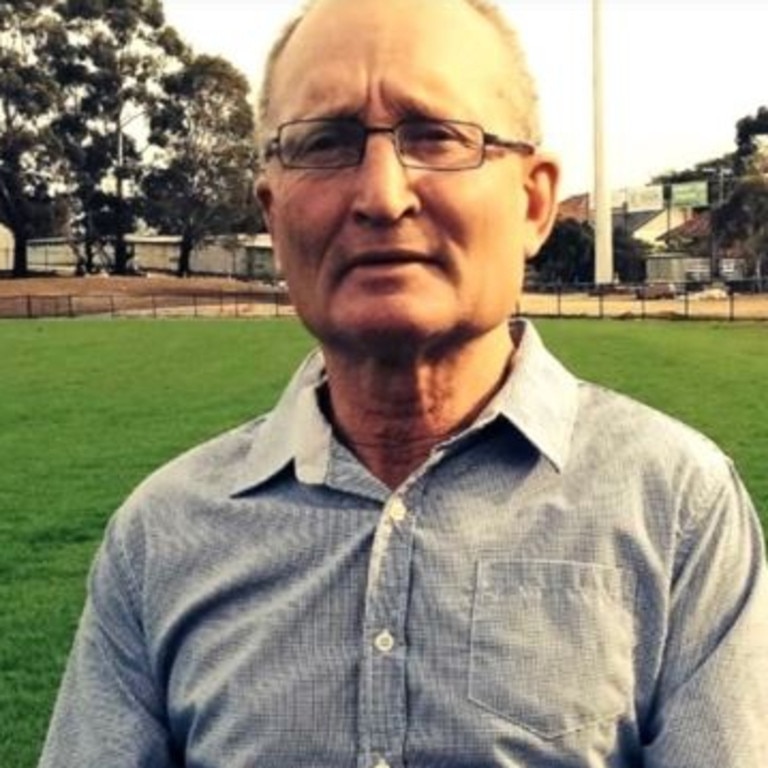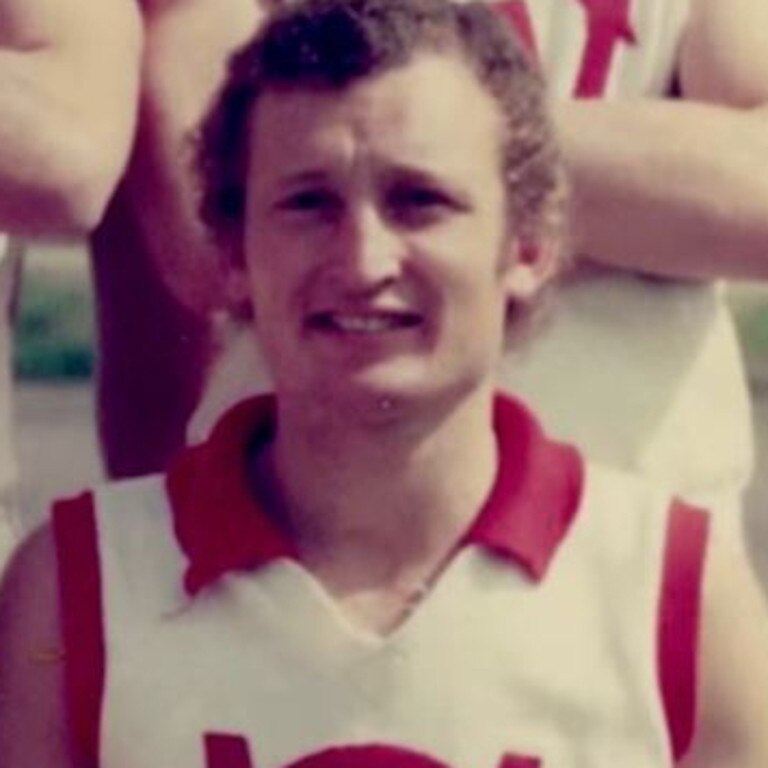Robbo: Why the state government needs to act on concussion to prevent another ‘forgotten generation’
Across Victoria, and other states, there are thousands of local footy players who are suffering in silence from the impacts of concussion. MARK ROBINSON says the state government needs to step in.

Footy in the country and suburban leagues was a rugged sport in the 1970s and 1980s, when men were men and women staffed the canteen.
The game is cleaner (thankfully) and king-hits (hopefully) are only ‘’remember when’’ stories spun by the old blokes at the bar, with a pot in one hand and fake toughness in the other.
It was a different game.
The newer vintage of player, both male and female, would be horrified to learn that if a player was KO’d by a punch, or a ‘’clothes-line’’ tackle, or a ‘’shirt-front’’, or was cannoned in to with his head over the ball, the player was carted off the ground and most likely given smelling salts to help clear his head.
Not only was he encouraged to ‘’get back out there’’ if he could stand up - injuries above the shoulder didn’t count, was the mantra of Hall of Fame coach John Kennedy - but the player also wanted to get out there. It was the unwritten code
Concussion wasn’t a ‘’thing’’ then, not like it is now and certainly not what it will be in the future as the focus zooms sharper on potential brain trauma suffered in a collision-based sport such as footy.

Through those two decades, and you could probably add the 1970s and 1990s, tens of thousands of players represented country and suburban clubs in 400 clubs, plus juniors.
True, not every player was concussed (clinical), but almost every player was involved in a collision which created subclinical damage.
The vast many have not suffered because of it, but there are some, perhaps undiagnosed with CTE symptoms, living life wondering why there is confusion, mood swings, imbalance, forgetfulness, depression, excess drinking, drugs, domestic violence and divorce, which experts link to brain trauma, which includes from concussions on the footy field.
They are footy’s forgotten generation, men and their families who have suffered in silence.
The AFL can’t do anything for them or the AFLPA, or the leagues they played in and clubs they represented.
But what can be done is continue to the make the game safer via AFL rules and better educate the committees, the doctors and the coaches at every club and every league, so that in 2060 we don’t look back at the 2020s and talk about those men and women as being part of the forgotten generation.
The state government needs to play a role.
They hand out grants for changerooms, toilets and ground upkeeps, but where’s the money to help educate every club and player on concussion?
It’s not an AFL role because whilst it cares about the health of all players, they cannot deny it also cares about the brand.
The state government has a responsibility to set up an independent brain trauma group which focuses on prevention, mitigation and rehabilitation outside the self interest of the peak bodies.
God knows the forgotten generation did not have any of that, particularly rehabilitation.
There was nothing. There is nothing, still.
Who knows how many men’s lives - and the lives of their families - have careered down a path of dysfunction because of head trauma suffered on a footy field? Or are about to?
It is real.
Ask Jenny Bromley, whose husband Alan ‘‘Dizzy’’ Lynch, who is 70 and living in an aged care home in Torquay.
He’s suffering from Parkinson’s disease, which is one of the many neurological conditions linked to repeated head knocks. It is estimated Dizzy suffered at least 15 concussions while playing.

Dizzy, who was also a track and field champion at Stawell, played footy for North Shore, Geelong West in the VFA, Richmond and Footscray seconds, before taking his wares back to the bush, namely at North Ballarat as premiership coach, for Beaufort, also in Tassie and over in the west.
It is a football family. Jenny is first cousins with Tony Lockett and her three sons, having started in Auskick aged five, also played their senior footy at North Ballarat.
The twins, Sam and Josh, have retired in part because of what they believe footy had done to their father, while Tom is still playing. ‘’Even though I’m a passionate football person,’’ Jenny says, ‘’if I had known what life was going to be like for Dizzy, there’s no way the boys would’ve played footy.’’
Jenny’s heart was in the game. She grew up next door to North Ballarat’s oval, and from mother and fan she became president of the club for two years and, when the Roosters were in the VFL, she was a member of the VFL board.
Jenny spoke about Dizzy’s plight three years ago, in a confronting article in the Guardian. Dizzy’s situation now is ‘’ridiculous, unbelievable’’, she said.
‘’He’s not the person he was,’’ she says. ‘’How do I put it? He lives completely in the moment. His memory has deteriorated so much in the past six weeks … it’s been amazing.
‘’Just that stare into space … it’s difficult to explain what that look is like. It’s like there’s something there … and you try to figure out what’s going on his mind.
‘‘The other day I picked him up from the home and took him into Torquay and I had my grandson with me. The roles were reversed. The grandson was in charge, the five year-old telling Pop what to do, to sit down Pop, telling him where to be.
’If we go and visit him, he knows because he’s in the moment, but after we leave he wouldn’t have a clue we were there.’’
The emotional toll of the past decade is clearly evident, desiring it was a ‘’kind of grieving’’.
‘’Dizzy is not the person (she pauses ) .. he’s just not there, he’s just isn’t. If we go way back, like, if you said who won the Grand Final he played in the ‘70s, he’d probably tell you the players in the team. But ask him what he did five minutes ago he’d have no idea.
’’I’ve totally lost my husband.’’

Jenny doesn’t know if the head knocks are the reason for Dizzy’s condition. Yet, the available evidence points to possible CTE. Dizzy has already agreed to send his brain to the Australian Sports Brain Bank.
‘’I can’t say it’s 100 per cent concussion that’s caused it, but if you go through his history of how many concussions he’s had, that he could remember …
‘’He’s had a lot of testing, his doctor has done a lot of research in this area, and he believes Dizzy shows many signs of CTE. His scans indicate that.’’
Jenny wants to see change at community level.
She’s on the Community Concussion Research Foundation, which is chaired by Sydney Swans chairman Andrew Pridham, and, being a school principal, she’s striving for increased education in the concussion space.
‘’For Dizzy, there’s nothing we can do, but education for everyone else is what we’re working towards. I don’t think we learn about the brain.
‘’What I’m hoping is to get education in community sports. There’s not enough education for the kids playing footy, not enough education in place (at footy clubs).
‘’You’re right, we don’t want another forgotten generation.
‘’’It so scary that we don’t know how many people are out there suffering.
‘’I almost drove off the road recently listening to a presenter on radio who was questioning the time the kids would miss because of concussion, like, should they really have to stand down for 21 days?
’That’s the type of mentality out there.
‘’Spend a day with Dizzy and see if you’d be even talking like that.’’
Jenny questions her love for footy.
‘’When Tom plays … it makes me feel sick in the stomach watching,’ she said.
‘’Do I love the game? I can’t say I love the game, no.
‘’I know it’s such a fabric of our society, and being part of a footy club is so good for people’s mental health and wellbeing.
‘’We can’t not have football, but it has to be safe and not just safe for the elite. It’s got to be safe for people playing in Birchip or playing wherever. And that’s why we need to educate people.’’
More Coverage
Originally published as Robbo: Why the state government needs to act on concussion to prevent another ‘forgotten generation’





